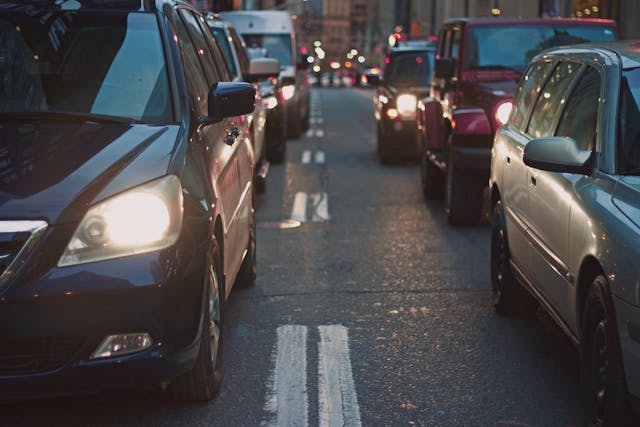If you or a loved one have been injured in a car accident caused by a negligent driver, you may be facing painful injuries, missed work, lost wages, and mounting medical bills. The uncertainty of who is responsible for covering your damages can add to the stress.
Car accident liability can be complex, particularly when the driver involved is not the owner of the vehicle. Understanding who bears legal responsibility—whether the car’s owner or the driver—is crucial in seeking compensation for damages.
Understanding Auto Insurance and Liability
Does Insurance Follow the Car or the Driver?
In most cases, auto insurance policies follow the vehicle rather than the driver. This means that if an accident occurs, the vehicle owner’s insurance policy typically covers the damages, regardless of who was driving. However, insurance companies assess various factors to determine coverage eligibility.
Key Factors Influencing Insurance Coverage
Unlisted Household Driver: Insurance companies require all household members who may drive the car to be listed on the policy. If an unlisted household driver causes an accident, the insurer may deny the claim.
Excluded Drivers: Some policies explicitly exclude certain individuals. If an excluded driver is involved in an accident, the insurance may not cover the damages.
Unauthorized Use of a Vehicle: If a driver takes a car without permission or if the vehicle is stolen, the owner’s insurance typically does not apply. In such cases, the at-fault driver’s insurance or the victim’s uninsured motorist coverage may be responsible.
Insufficient Coverage: If damages exceed the policy limits, the injured party may need to file a claim against the driver personally.
When Is the Driver Liable for a Car Accident?
A driver is generally responsible for their actions behind the wheel. If their negligence leads to an accident, they may bear liability even if they do not own the vehicle. Here are common scenarios where a driver is at fault:
Distracted Driving
Taking eyes, hands, or attention off the road increases the risk of accidents. Common distractions include texting, using a GPS, or eating while driving.
Driving Under the Influence
Alcohol or drug impairment affects judgment, reaction time, and motor control, making it a leading cause of serious car accidents.
Speeding and Traffic Violations
Ignoring speed limits, running red lights, or failing to yield can lead to severe accidents. Traffic laws exist to ensure road safety, and violating them often results in liability.
Aggressive or Reckless Driving
Tailgating, weaving through traffic, and road rage behaviors put all road users at risk. Aggressive drivers can be held liable for accidents they cause.
Driver Errors
Even minor mistakes, such as improper lane changes or misjudging distances, can cause significant accidents. When a driver’s actions result in a crash, they are typically responsible for the damages.
When Is the Car Owner Liable for an Accident?
While drivers are usually at fault for their actions, car owners can also be held liable under certain circumstances.
Corporate Liability in Commercial Accidents
Businesses that own fleets of vehicles can be responsible if poor management leads to an accident. Situations where corporate liability may apply include:
Unsafe Company Policies: If an employer pressures drivers to meet unreasonable deadlines, leading to reckless driving.
Inadequate Vehicle Maintenance: Failure to maintain a fleet properly can result in mechanical failures and accidents.
Negligent Hiring: If a company hires a driver with a history of reckless driving and they cause an accident, the company may be responsible.
Private Car Owner Liability
Individuals who lend their vehicles to others can also bear responsibility under specific conditions:
Negligent Entrustment: If an owner allows an unfit driver—such as someone intoxicated or unlicensed—to use their vehicle, they may be held liable for any resulting accidents.
Failure to Maintain the Vehicle: If the owner knowingly allows someone to drive a vehicle with faulty brakes or other mechanical issues, they can be held responsible for any accident caused by these defects.
How to Determine Liability in a Car Accident
If you are involved in an accident with a driver who does not own the vehicle, determining liability is essential for recovering damages. An experienced car accident attorney can help by:
Investigating the accident details.
Reviewing the insurance policies of both the owner and the driver.
Collecting evidence to establish fault.
Insurance companies may attempt to shift blame or minimize payouts. Consulting a personal injury lawyer can ensure you receive fair compensation for medical expenses, lost wages, and pain and suffering.
Why Hiring a Lawyer Increases Your Compensation
A study on insurance claims revealed that individuals who hired a lawyer received, on average, 40% more compensation than those who negotiated alone. Attorneys understand how to navigate complex liability issues and counter tactics used by insurance adjusters to devalue claims.
Get Legal Help for Your Car Accident Case
If you have been injured in a car accident, whether as a driver or passenger, consulting a top-rated car accident lawyer can make all the difference. A legal team can investigate your case, negotiate with insurance companies, and ensure you receive the maximum compensation possible.
Schedule a Free Consultation Today
Don’t let insurance companies dictate your settlement. Speak with an experienced car accident attorney today to discuss your case. The sooner you act, the stronger your claim will be.
for a free, no-obligation consultation.

